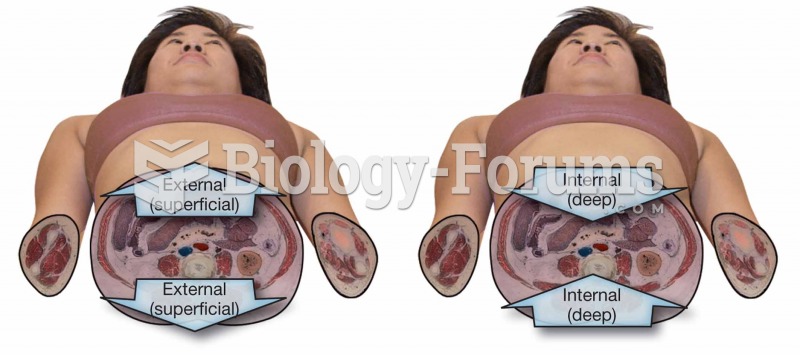|
|
|
There are more nerve cells in one human brain than there are stars in the Milky Way.
There can actually be a 25-hour time difference between certain locations in the world. The International Date Line passes between the islands of Samoa and American Samoa. It is not a straight line, but "zig-zags" around various island chains. Therefore, Samoa and nearby islands have one date, while American Samoa and nearby islands are one day behind. Daylight saving time is used in some islands, but not in others—further shifting the hours out of sync with natural time.
Blood in the urine can be a sign of a kidney stone, glomerulonephritis, or other kidney problems.
Acute bronchitis is an inflammation of the breathing tubes (bronchi), which causes increased mucus production and other changes. It is usually caused by bacteria or viruses, can be serious in people who have pulmonary or cardiac diseases, and can lead to pneumonia.
Cancer has been around as long as humankind, but only in the second half of the twentieth century did the number of cancer cases explode.







